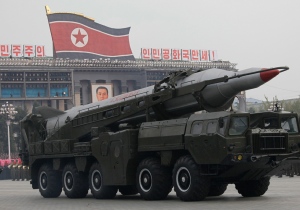“And the peace of God, which passeth all understanding, shall keep your hearts and minds through Christ Jesus.”
—St. Paul’s letter to the Philippians (4:7) (NKJV)
Neville Chamberlain, then Prime Minister of Great Britain, spoke to a cheering crowd in front of 10 Downing Street on September 30, 1938. Believing he had averted war between Nazi Germany and Britain, Chamberlain boldly declared, “My good friends this is the second time in our history that there has come back from Germany to Downing Street peace with honor. I believe it is peace in our time.”
Less than a year later, following an unprovoked Nazi invasion of Poland, Great Britain and France declared war on Germany, marking the beginning of World War II. Approximately 60 million people died during the war. Chamberlain couldn’t have been more mistaken about peace.
Prior to World War II, World War I was referred to as simply the World War. Lasting from from July 1914 to November 1918, up to that time in history it was unequaled in its level of material destruction and human casualties. It is estimated that as many as 10 million people lost their lives. The tremendous scale of death and destruction led many to the conviction that it should be “the war to end all war.” The peace following World War I lasted barely two decades.
Only five years passed between the end of World War II and the beginning of the Korean War. Although a tenuous ceasefire between North and South Korea stopped the fighting, the war never ended. The two Koreas have officially been in a state of war for over 60 years.
The United States began its involvement in Vietnam in 1960 and would remain engaged there for almost 15 years. The following year, the United States sponsored an invasion of Cuba by CIA-trained Cuban exiles, which resulted in their crushing defeat known today as the Bay of Pigs disaster.
The United States invaded Grenada in 1983; Panama in 1989; and Iraq in 1991, in what has become known as the Gulf War.
Following the 9/11 terrorist attacks, the United States invaded Afghanistan in 2001 and continues in a seemingly perpetual state of war there. America subsequently invaded Iraq in 2003 and remained there for a decade.
Every U.S. President since Harry Truman has tried unsuccessfully to bring peace to the Middle East, where Arab-Israeli tensions are still boiling over.
Today, the Korean War is back in the news. North Korean leader Kim Jong Un has been doing some serious saber rattling, threatening nuclear annihilation of Japan and the United States. Some on Capitol Hill have begun to call for preemptive military strikes against Kim’s regime. Cooler heads are calling for negotiation and peace talks.
War after war should come as no surprise to Christians. Jesus tells us in Matthew 24 that there will be wars and rumors of war up to the day of His return. While peace is certainly a desirable goal of politics, nations pursue periods of peace with full knowledge they are fleeting.
In John16, Jesus foretells His passion and describes to His apostles how they will suffer their own trials and tribulations for being His followers. After explaining what will happen, Jesus tells them in verse 33 (NKJV), “These things I have spoken to you, that in Me you may have peace. In the world you will have tribulation; but be of good cheer, I have overcome the world.”
The only lasting peace is an inner peace of heart and mind derived through a personal relationship with the Savior of the world. In Philippians 4:7, St. Paul describes this as, “the peace which passeth all understanding.” Such peace is vividly displayed in Acts 16, where we see Paul and Silas praying and singing hymns to God while chained inside a Roman prison. Paul behaved in this manner because, as he explains, his faith in Christ taught him to be content in any situation. In Philippians 4:12 (NKJV) Paul declares, “I know how to be abased, and I know how to abound. Everywhere and in all things I have learned both to be full and to be hungry, both to abound and to suffer need.” Such contentment is derived from an immovable sense of inner peace that is unaffected by outer circumstances.
The world seeks peace through politics and war. Clausewitz described war as, “an extension of politics by other means.” Unfortunately, as history has demonstrated time and again, winning at politics and war does not guarantee peace will prevail.
True peace comes from only one source. It arises from a proper relationship with Jesus Christ. The Rev. Billy Graham explains this best:
“The happiness which brings enduring worth to life is not the superficial happiness that is dependent on circumstances. It is the happiness and contentment that fills the soul even in the midst of the most distressing circumstances and the most bitter environment. It is the kind of happiness that grins when things go wrong and smiles through the tears. The happiness for which our souls ache is one undisturbed by success or failure, one which will root deeply inside us and give inward relaxation, peace, and contentment, no matter what the surface problems may be. That kind of happiness stands in need of no outward stimulus.”
Peace might seem elusive to you, but it’s really quite simple to find. Seek it in the Gospel and you will quickly discover it has been waiting for you there all along!

Recent Comments